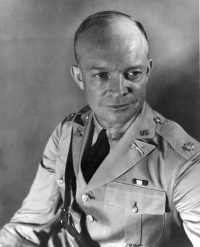The president of the Philippines visited me at 10:00 A.M. today. His purpose was to tender to me an honorarium for services rendered during the period I was acting as General MacArthur’s chief of staff in Manila, where he (MacArthur) went as military adviser to the Philippine government. (Certain American officers were detailed to that task, by direction of the president of the United States, under authority of a law passed in 1926 and amended in 1934 or 1935.)
President Quezon brought with him to my office a draft of a citation which he had written to accompany the presentation to me of the honorarium.
I carefully explained to the president that I deeply appreciated his thought and was grateful for his expressions of gratitude, but that it was inadvisable and even impossible for me to accept a material reward for the services performed.
I explained that while I understood this to be unquestionably legal, and that the president’s motives were of the highest, the danger of misapprehension or misunderstanding on the part of some individual might operate to destroy whatever usefulness I may have to the allied cause in the present war. My government has entrusted me with important tasks, carrying grave responsibility. We agreed that the only matter that is now important is for everyone to do his best in the war effort, and any gossip on such a matter might reflect upon the army and the War Department.
In view of the representations I made, the president accepted my explanations and stated that the matter was ended once and for all.
He then said he wanted to do something that could not possibly embarrass me. It developed that this plan was to present to me, in official form, the citation he had written to accompany the honorarium he had in mind. I stated that I not only had no objection but that I would be highly honored in the receipt of a commendation from him, which I explained would be supplementary to the flattering citation he gave me two years ago. I told him that such a citation would be of great and more lasting value to me and my family than any amount of money his government could possibly present to me.
The matter was dropped on this basis, with the president stating that he honestly believed that in the same circumstances he would probably have given the same answer that I did. He obviously accepted my decision without resentment and without loss of face this latter point was one that had given me tremendous concern. To refuse a gift from anyone raised in the Far East, especially if a point of ethics has to be pled, is quite apt to develop into a serious personal matter. I’m certain that President Quezon feels I did the right thing and that he has respect for my decision. (In contemplating my decision, which I had opportunity to do in advance because of a telephone call from General Valdez, my method of declining gracefully became clearer after a short talk with General Marshall on the subject.)
